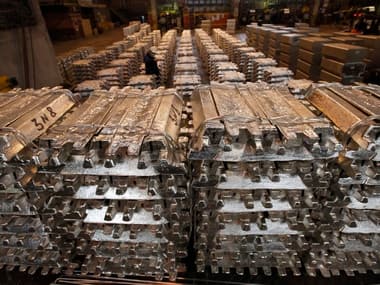by Sandeep Sahu
Only day before yesterday, Vedanta Aluminium Limited (VAL)’s Managing Director Sushil Kumar Roongta exuded confidence about restarting the company’s 1 million ton per annum (MTPA) refinery in Lanjigarh in Odisha’s Kalahandi district, shut down since 5 December last year due to a dearth of bauxite.
His confidence stemmed from a clarification issued by the Union Ministry of Environment and Forests (MoEF) that the bauxite mines in neighbouring Jharkhand and Chhattisgarh, with which Vedanta had a makeshift arrangement for supply of raw material, don’t need fresh approvals for a renewal of their mining leases.
“We’re working to see how soon we can get the raw material needed to restart the factory,” Roongta had said.
Confident that the Supreme Court verdict on mining the Niyamgiri hills in Kalahandi would go in its favour, the company perhaps believed that raw material supply from the two neighbouring states and other sources would sustain it till got hold of the rich deposits of bauxite in the hills considered sacred by the primitive Dongria Kondh tribe.
[caption id=“attachment_711668” align=“alignleft” width=“380”]  Does the Supreme Court’s verdict put an end to Vedanta’s aluminium dreams? Reuters[/caption]
But VAL’s optimism proved extremely short-lived as the Supreme Court inflicted a body blow on the plans of the London-based company with its verdict on Thursday leaving the decision on whether or not the Niyamgiri hills should be mined on the local Gram Sabhas.
More importantly, the apex court said the religious rights of the primitive Dongria and Kutia Kondhs and other traditional forest dwellers to worship ‘Niyam Raja’, their God, with his abode at the hill top, must be ‘preserved and protected’ at all costs. Ominously for Vedanta, the three-member Supreme Court bench consisting if Justices Aftab Alam, KS Radhakrishnan and Ranjan Gogoi ruled that a judicial officer of District Judge-rank appointed by the Odisha High Court would attend the Gram Sabha meeting as an observer to ensure that it is conducted in a free and fair manner without any attempt by the company, the state government or the Central government to influence the outcome.
Impact Shorts
More ShortsThe first Gram Sabha meeting conducted to deliberate on the issue sometime in the spring of 2004 was, by all accounts, a sham, with the district magistrate and the superintendent of police present with a huge contingent of armed policemen to ensure that the ’trouble-makers’ stayed away from the meeting. This time though, chances of a repeat are extremely remote given the international attention that the issue has received in the nine years since then.
That, however, does not mean the company and the state government will sit quietly and helplessly waiting for the verdict of the Gram Sabha, which is almost certain to go against the company if conducted in a free and fair atmosphere as desired by the apex court.
“While the administration would be wary of using force to get a Gram Sabha verdict in Vedanta’s favour like it did last time, nothing stops the company from using money power to influence the outcome,” said a apprehensive Kalahandi-based activist who has been fighting for the rights of the Dongria Kondhs for years.
This possibility is perhaps what Prafulla Samantara, one of the petitioners in the Supreme Court against Vedanta, had in mind when he said in his first reaction to the Supreme Court verdict, that he would have been much ‘happier’ if the apex court had denied permission to Vedanta for mining bauxite in Niyamgiri.
The president of the Odisha Chapter of Lok Shakti Abhijan, however, welcomed the decision saying the court had upheld the constitutional right of the Gram Sabha in Schedule V areas to have the last word on issues concerning their land, water and forests.
In an interesting reaction, Chairman-cum-Managing Director (CMD) of Odisha Mining Corporation (OMC) Saswat Mishra, who coincidentally was the district magistrate of Kalahandi when the first Gram Sabha was conducted under the shadow of gun-toting policemen in 2004, saw a silver lining in the apex court verdict delivered today.
“The Supreme Court has made a distinction between the abode of ‘Niyam Raja’ on the hill top and the Niyama dangar, 10 km from the peak, where the actual mining would take place,” he pointed out.
It was OMC which had challenged the August 2010 decision of the MoEF to deny Stage-II clearance for bauxite mining in the hills in March last year. The state-run corporation, which has the lease for the Niyamgiri bauxite mines, has signed a memorandum of understanding (MoU) with Vedanta for supply of 150 tons of bauxite to the company over a period of 30 years.
While VAL can revive its shut down refinery in Lanjigarh with short term supply of ore from elsewhere, there is no way it can run the plant for a decent length of time without laying its hands on the rich bauxite deposits in Niyamgiri which, needless to say, was the very raison d’etre for setting up the plant on the foothills in the first place. If the Gram Sabhas take a decision not to allow mining as expected, it could well mean the end of the road for Vedanta’s dream of emerging as the biggest and the cheapest aluminium producer in the world.


)

)
)
)
)
)
)
)
)



